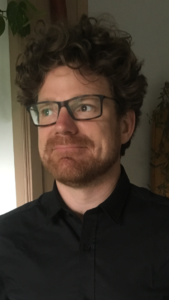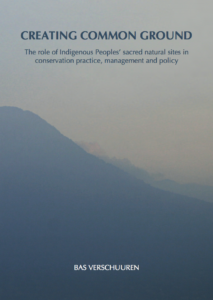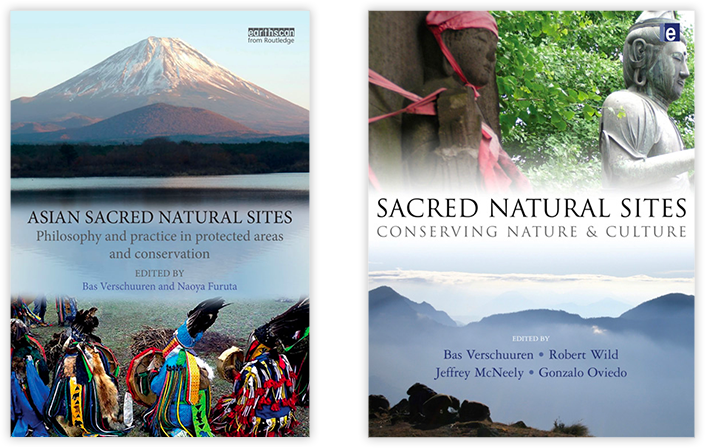PhD Research
This research has been undertaken with the department of Sociology of Development and Change at Wageningen University in the Netherlands between 2013 and 2017. Much of the data had been collected prior to 2013 while I did applied ethnographic research in support of the conservation of indigenous peoples sacred natural sites in various places around the world.
Download PhD Thesis << here >>
Sacred natural sites can be mountains, rivers, forests, trees and rocks that have special spiritual significance to Indigenous peoples. To Indigenous peoples these places are not just part of their environment, culture and spirituality but they also form their worldviews and ethnicities.
Based on applied ethnographic research on sacred natural sites in Ghana, Australia and Guatemala, I look at how Indigenous people’s realities can be integrated into conservation approaches and how they can lead to the co-creation of new forms of nature conservation were nature and culture are more balanced.
I use concepts the conceptual domains of rights-based approaches, biocultural diversity and ontological plurality to focus on how a common ground is being created by Indigenous peoples and development and conservation actors. I argue that this common ground has the capacity to transform conservation practice, management and policy if different worldviews, including those of Indigenous peoples, are equally considered.
Research questions
Grounded in the conceptual framework, the research was guided by the following research questions, and which have been answered on the basis of empirical research primarily conducted in Australia, Guatemala and Ghana:
- How has the significance of Indigenous sacred natural sites been recognised in nature conservation globally and what are the main implications and challenges for nature conservation practice, management and policy?
- How do biocultural conservation approaches contribute to creating common ground for the conservation of Indigenous sacred natural sites and species?
- How do Indigenous people contribute to the creation of a common ground for the conservation of sacred natural sites and to what extent does this affect Indigenous rights and ontologies?
- What elements are universal to the process of creating a common ground for the conservation of Indigenous sacred natural sites?
The main recommendation is that conservation and development actors should consider multiple ontologies when creating a common ground for the development of biocultural conservation approaches.
The key findings of the research

In reality, this thesis is the work of the minds and hands of many. Therefore, I am thankful to everybody and everything that came together in this web of interconnectedness from which my thesis emerged. I am especially thankful to the very diverse groups of people in unique places around the world who taught me about Indigenous ontologies.
The key findings of this thesis include several universal elements to the creation of a common ground:
- willingness to learn about other worldviews;
- application of participatory approaches and applied research;
- the use of cultural brokers; active processes of stakeholder engagement;
- agreement on governance arrangements
- the adoption of ontological equity.
Conclusions
I draw four conclusions derived from the main research results:
- Biocultural conservation approaches can enable the creation of a common ground, but they may also constrain Indigenous ontologies;
- Conservationists should learn from other worldviews and ontologies in order to improve the conservation of Indigenous sacred natural sites;
- Non-human agency and spiritual governance are under-recognised in the conservation of spiritscapes and sacred natural sites;
- Combining an ethnographic approach with an engaged and participatory research strategy is useful for considering multiple ontologies.
Recommendations
The recommendations of this thesis could form part of a future research agenda for the development of a common ground between Indigenous people, conservationists, and development actors in relation to the conservation of Indigenous sacred natural sites.
The main recommendation is that conservation and development actors should consider multiple ontologies when creating a common ground for the development of biocultural conservation approaches.




